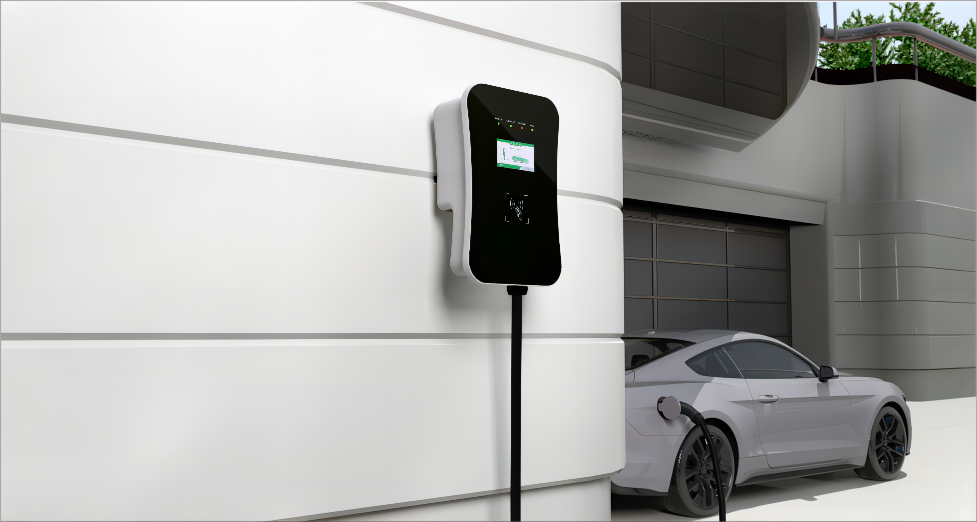An AC EV charger refers to an electric vehicle (EV) charging station that is capable of both providing power to charge an electric vehicle's battery and supplying air conditioning to the vehicle while it charges. This can be particularly useful in hot climates or during long charging sessions, where it's important to maintain a comfortable temperature inside the vehicle.
Standard:
SAE Standard / IEC StandardConnector type:
Type 1 / Type 2Connector Mechanical Operating Life:
≥10000 times
AC EV chargers can be installed in various locations such as homes, parking lots, and commercial premises to support the growing number of electric vehicles on the road. They contribute to the convenience and sustainability of electric transportation by combining charging infrastructure with comfort features.
AC EV chargers typically have the capability of providing a steady supply of alternating current (AC) power with a high amperage rating to charge the vehicle's battery. Additionally, they may have built-in air conditioning systems or provisions to connect to the vehicle's existing air conditioning system to provide cooling.

EV chargers have several advantages
1- Infrastructure availability: AC chargers are more widely available compared to DC (Direct Current) fast chargers.
2- Cost-effectiveness: AC chargers are generally less expensive than DC fast chargers.
3- Flexibility: AC charging offers a range of power levels, allowing EV owners to choose the charging speed based on their needs.
4- Lower battery stress: AC charging generally puts less stress on the EV's battery compared to DC fast charging.
5- Safety: AC chargers are considered safer due to their standardized charging protocols and hardware

Here are some of the key advantages and features:
1- Compatibility: AC EV chargers are compatible with a wide range of electric vehicles, including all-electric vehicles (EVs) and plug-in hybrid electric vehicles (PHEVs).
2- Convenient and Easy-to-Use: AC EV chargers are typically easy to install and use. They can be plugged into a standard electrical outlet (Level 1 charger) or a dedicated charging unit (Level 2 charger) at home, office, or public charging stations.
3- Cost-Effective: AC EV chargers are generally more affordable compared to DC fast chargers (Level 3 chargers). Level 1 chargers typically come standard with EVs and require no additional investment, while Level 2 chargers may require a dedicated charging unit installation.
4- Charging Speed: AC EV chargers offer moderate charging speeds. Level 1 chargers typically provide a charging rate of 2 to 5 miles of range per hour, while Level 2 chargers can offer a charging rate of 10 to 30 miles of range per hour.
5- Versatility: AC EV chargers can be used for both residential and commercial charging applications.
6- Safety and Protection: AC EV chargers incorporate safety features to ensure reliable and secure charging.

How to monitor the EV chargers?
Here are some common methods for monitoring EV chargers:
1- Charger Display: Many EV chargers come with built-in displays that provide real-time information about charging status, energy usage, and charging speed.
2- Mobile Apps: Some EV charger manufacturers provide mobile apps that allow you to monitor and control your charger remotely. These apps often provide detailed information about charging sessions, energy consumption, and charging history.
3- Web-Based Portals: Certain EV charger manufacturers offer web-based portals where you can access information related to your charger.
4- Energy Management Systems (EMS): If you have an advanced energy management system installed, it can integrate with EV chargers and provide comprehensive monitoring capabilities.
5- Third-Party Monitoring Solutions: There are third-party monitoring solutions available that can integrate with various EV chargers.
It's important to note that the monitoring capabilities may vary depending on the charger's make and model, as well as the level of integration with monitoring systems. It's essential to check the specifications and features provided by the manufacturer or consult with a professional to ensure compatibility and find the most suitable monitoring solution for your EV chargers.
FAQs:
Q1: Do you support OEM/ODM?
A:Definitely, OEM&ODM service is supported with a certain quantity,including customize logo,package and label;
Q2: What's the production time?
A: The production time is normally 15 working days. but we will always prepare some stocks for popular models.
Q3: Can you provide DDP service?
A:Yes, if you are a personal customer and don't want to deal with the customs, we can provide DDP service to your address.
Q4: What about the warranty and how to claim?
A: Warranty period are 5 years since you receive the product, our professional after-sales team will deal with all warranty issues.